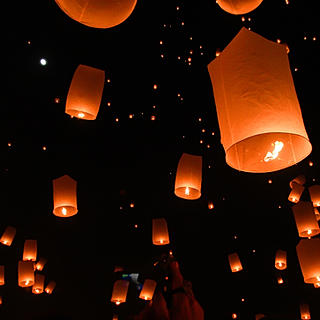Forgive, Forget ... Repeat?
- ruthtwest
- Apr 20, 2018
- 3 min read
I was caught up in my thoughts on an anniversary of sorts. I was lost in the past for a few minutes – involuntarily re-feeling something I thought was long dead. An old deep wound has not fully healed and the re-discovery of it was disconcerting. It’s been living inside of me, continuing to influence my present decisions and responses without my conscious knowledge. So we sat together for a bit - getting re-acquainted. Then I realized I had new questions. If I had forgiven these past grievances, what was the deep sadness about? I actually felt the sting of these memories, reluctantly re-visiting them but with a quicker pace since I already knew my way around. I reconciled the hurt wasn’t about a lack of forgiveness – it was a lack of forgetting. And in the impossibility of forgetting, the hurt repeats, the melancholy returns and the reconciliation must begin again.
Last week, I visited Los Angeles to celebrate my mom’s birthday. We went to the Japanese American National Museum. I was happy to spend this day steeped in my Japanese heritage and as “luck” would have it, there was a Hapa exhibit. (Hapa means half, as in ancestry in this case, so half-Japanese and half-something else). In a very early blog, I mentioned that I would write more about my mixed-race ancestry (or thoughts about it) so this is it. Because I don’t believe in coincidence, I knew I was meant to engage in my review of heritage in this way. I was excited to witness what the project had to share because there weren’t many other opportunities to stand alongside a conversation about the diversity of my DNA. This project took 15 years to produce. There were pictures and comments of Hapa people juxtaposed as a before and after commentary on their thoughts about being Hapa. Hapa people of all ages. I moved from one to another feeling a connection that warmed me from the inside until I realized there were no Hapa people that looked like me – none that I could identify more completely with and I felt a profound sadness. And it was a race-thing. It was a Hapa-thing and a race-thing all rolled up into one. I forgave people their ignorances in how they talked about/to me as I was growing up; the intrusive and insulting questions about my mother the Chinese babysitter; the name calling (Cher sang a song about it) and the repeated insistence that I prove I was one or the other. But here, in the midst of an embracing of a blended diversity, I again was absent. I will forgive this ignorance, too – eventually. I can’t talk into this void right now because I don’t have enough strength or courage to fill the gaping hole this reality has left inside me. I had to choose to forget for a bit so that I could appreciate the other exhibit on display – the one that chronicled the impact of the internment of Japanese people during the war.
I walked through the spaces of pictures and artifacts like a shadow peeping into someone else’s history. I looked at the faces of people that reminded me of my aunts and uncles “back home.” If they could peer back at me they would likely classify me as a stranger who had no idea about them and their culture. I saw the level of hatred I had seen chronicled before during the Civil Rights movement. One poster was of a senator who vowed in his re-election campaign to “make California white again.” Yeah – that never gets old, apparently. I felt the anger rise within me and I thought again of the Hapa exhibit and I moved on. Should I stay a shadow or should I be woke in a more authentic way knowing that in doing so I must relive the challenges of belonging? I can forgive but it seems I am not fully equipped to forget.
Forgiving and forgetting has been demanded of (some of) us as a matter of living our out faith correctly. God has been used as an example of this righteous act. God blots out our transgressions (forgives) and will not remember (forgets) our iniquities (from Is 43:25 or Jer 31:34). And so we, too, must follow. But we are such limited beings. We want to be more god-lie so we assign rules that can't possibly be kept. God doesn't forget - God no longer remembers. Semantics? According to dictionary.com, to forget means to unintentionally omit; neglect willfully. The impact of that distinction allows me to hope in bigger ways. I know I can't forget those things that have left scars - but maybe I can find better ways to lean into healing my wounds ... remembering the pain no more.


Comments